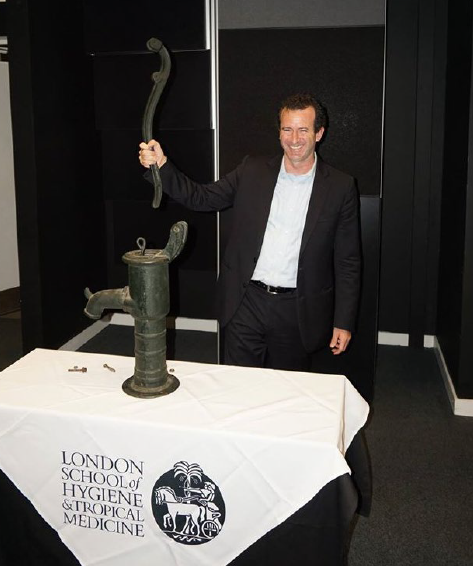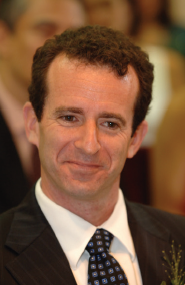The 24th Annual Pumphandle Lecture was delivered on 8th September 2016, by Dr Paul Spiegel, recently appointed Director of the Center for Refugee and Disaster Response at Johns Hopkins Bloomberg School of Public Health. Previous to this appointment, Dr Spiegel had spent 14 years as Deputy Director of the Division of Programme Support and Management and Chief of Public Health at the United Nations High Commissioner for Refugees (UNHCR) in Geneva.
Dr Spiegel began by referring to the large numbers of refugees and displaced persons in the world today – the
largest numbers since the Second World War, with the majority coming from Syria, Afghanistan and Somalia.
He commented on the history of such humanitarian crises in recent decades, from Biafra in the 1960s to Cambodia in the 1970s to the many states in crisis today. Circumstances have changed considerably over the years both in the nature of the crises and countries where they take place, and the various institutional responses. Much of the data come from refugee camps, and it has been difficult to quantify populations affected but not in camps. Crises have become protracted and health problems have shifted from a focus on communicable disease to a wide variety of health problems including those associated with middle income populations such as in Syria. New agencies have arisen, several within the UN but many with other international, national or local bases. Recently several Islamic agencies have become involved, and there is a move for private sector involvement. Coordination of all these agencies has posed problems and it is recognised that decision-making has not
always been optimal, having to be made on imperfect data in a complicated political context.
He devoted much of the lecture to expanding details on five recommendations he considered essential for the improvement of responses to such crises. First is the need to “Operationalise the concept of centrality of protection”, recognising the priority to provide a safe environment for people but appreciating the complexity of this challenge. Second is the need to “Integrate affected persons into national health systems” making use of the talent and experience of the displaced persons. Third is a need to “Remake, not simply revise leadership and coordination”. He argued that the WHO has justifiably held a central position on the global stage but that it has failed repeatedly in recent years – it must repair its structures and procedures soon, or lose its central position. Fourth is the need to “Make interventions more efficient, effective and sustainable” which has many implications, including the need to move from annual budgets and short term thinking to recognition of need for long term infrastructure and the importance of education and livelihoods for societies if they are to survive and prosper.
Finally he referred to the need for “Data and research to improve outcomes and impact”. The need for effective
evidence-based decision-making is obvious – but this requires systematic collection and critical analysis of data in order that the required evidence can accumulate. He referred in particular to the Wellcome Trust / DfID R2HC initiative (on “Research for Health in Humanitarian Crises”) which is encouraging rigorous research on this group of problems. Dr Spiegel closed by referring to what he called the “forgotten emergencies” in countries such as South Sudan and Central African Republic, which have been crowded off the global agenda because of the magnitude and urgency of the crises in and around Syria. The world has failed both in allowing these circumstances to arise, and in responding to them. Something new is required to deal with these immense
problems– a new pumphandle.
The vote of thanks was proposed by Professor Jimmy Whitworth, and Dr Spiegel was invited to remove the handle of the pump to close the proceedings. Society Members then adjourned to the John Snow Pub in Soho for the Annual General Meeting of the Society.


